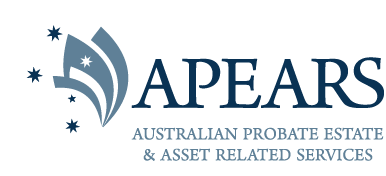WOW what an amazing few days in Wellington recently. WOW it was cold and wet. WOW over 300 Legal Executives in the one place. WOW some serious in-depth learning and WOW, WOW, WOW how good to be a small part of it.
Since sponsoring ENVOY privately since 1999 (previously for a few years as part of a national Trust Company) I attended my first NZILE conference in 2006 and will never forget being sorted into the playful group at the dinner by Alison Mooney. Following that in 2009, Heather Samuel gave a Key Note presentation about Reputation and was totally deflated prior to her speech when I related my experience of the Auckland cab ride not quite making it to the Waipuna Conference Venue, apparently petrol was required to run the cab…
At the recent conference in the magnificent Te Papa venue, the common statement/question posed to me was “Yes, yes Andrew we know all about you and resealing in Australia, but how do we deal with the UK?????”
My answer – I do that directly and have done many for New Zealand clients over the years. Of course with the UK there are some complications (potentially more than Australia if that was possible). If the UK estate is over £325,000.00 then I always recommend dealing with a UK specialist firm on the ground as this is the threshold that potential Inheritance Tax will kick in. In those situations you definitely need to get the “tax” correct. There are situations where past unclaimed spousal thresholds can be clawed back. So using a specialist can ensure you minimise any tax exposure.
Generally with the UK we have to complete HM Revenue & Customs documents, however in certain cases a Short Form is completed, which is lodged jointly with the resealing application directly with the Probate Office, with no need for any dealing with the HM Revenue & Customs Authority.
To ascertain whether a Short Form can be used or a full HM Revenue & Customs Application is required, we need the following basic information:
- Was the deceased born in the UK?
- Did the deceased live in the UK during their lifetime?
- Was the deceased receiving a benefit from any assets held by trustees that were resident in the UK?
- Did the deceased make any gifts of UK assets within 7 years of the date they died?
If any of these answers are “Yes” then we need a full HM Revenue & Customs Application.
At that time we then require more information specifically to ensure the deceased’s domicile is not in the UK. We include in the application statements about when the deceased moved to NZ, what was their occupation (before retirement), brief information on their education and work history including details of any recent visits back to the UK and the purposes thereof and details of any reasons why the family believe they were never returning to the UK for good. If the deceased was female and was married on or before 1 January 1974, we require the same information for her husband…..very odd these days!
It can be slightly complicated but generally these applications when made from my office have been processed quite smoothly. The reseal takes approximately 4-5 weeks from lodgement.
After the reseal is issued I can either assist with the collection or transfer of the assets held in the UK or let the clients deal with these directly.
For UK shares, we have a good Share Broker who can assist with the sale of shares. The paperwork can be quite daunting as some UK companies still have share certificates on issue. If these are lost then certain indemnities need completion and these need to be counter indemnified by a UK Insurance Company or Bank. (Very old school requirements!!)
If anyone has any questions relating to the United Kingdom please contact me to discuss your options and my experience to date.

